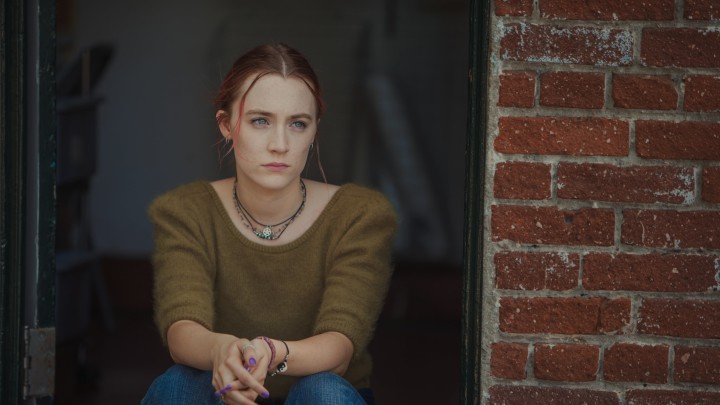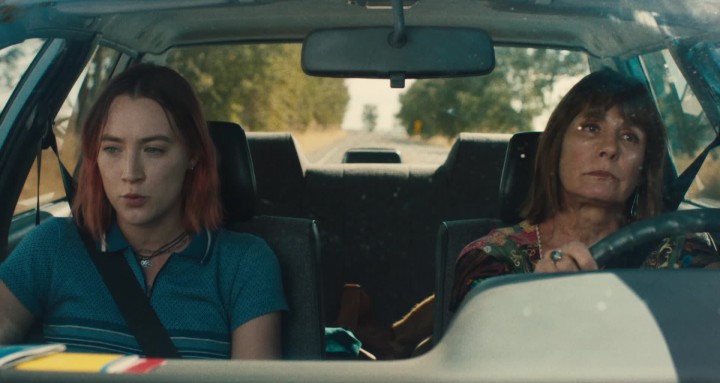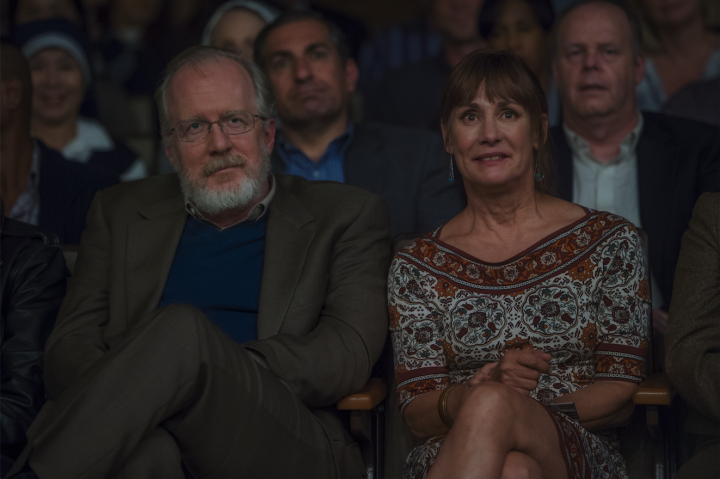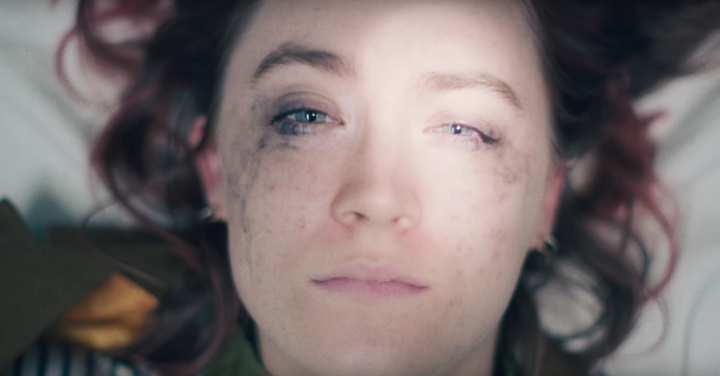It’s exceedingly rare that blatant heartstring-tugging garners anything beyond my most vehement derision, but I’ll be damned if Greta Gerwig hasn’t managed to pull one over on me. The writer/director of Lady Bird has crafted such a moving and heartfelt film that even I am not immune to its charms, something I did not go into the theater expecting. But I couldn’t help but love this understated little coming-of-age story in spite of myself, and I can’t imagine that I’m alone in that regard. What makes the film so exceptionally effective is its emotional honesty — along with a stellar performance from Saoirse Ronan — and the sincerity of its sentiment is sufficient to seduce even the most cynically minded.
The heart and soul of the film is its eponymous protagonist, Christine “Lady Bird” McPherson (Ronan), a true star turn that grants Ronan a remarkable spectrum of emotional nuance to play. As we watch Lady Bird stumble through her senior year at a Catholic private school in Sacramento and into her first year of college, her character is rendered as frustratingly relatable and would justifiably top lists one of the most accurate portrayals of adolescent femininity ever to grace the screen. Similarly stellar are Laurie Metcalf and Tracy Letts as Lady Bird’s long-suffering parents, heart-wrenching roles that both actors play to the hilt. Gerwig’s background as one of indie cinema’s on-screen darlings has undoubtedly paid dividends here, as even in her feature directing debut, she has established herself to be unequivocally capable of eliciting top-notch performances from her cast.
A key plot point in the film revolves around expressing a deep affinity for Dave Matthews’ objectively terrible “Crash Into Me” while other characters acknowledge its inherent awfulness — and therein lies the key to Lady Bird’s surreptitious charms. Gerwig is well-aware that her story could easily degenerate into the same sort of saccharine tripe that defines Matthews’ song, but she sidesteps this potential pitfall by crafting fully realized multidimensional characters and placing them in conflicts of a decidedly human scale. The result is a drama that avoids the cliches that seem to define its genre — if John Hughes is the progenitor of the modern coming-of-age film, Gerwig is the iconoclastic successor who throws out his rulebook in favor of something truer and less romanticized.
Gerwig’s writing and direction ooze an effortless, unaffected appeal that mark her as an emerging behind-the-camera talent to watch. At its core, Lady Bird is a film about the personas we adopt in the course of discovering our true selves, and with this picture, Gerwig has made a bold assertion of her own artistic identity. It’s not important why Christine chooses her self-applied sobriquet, it’s just important that she does — and the fact that Gerwig is able to convey this nuanced truth without any heavy-handed sermonizing is a major accomplishment. If you can make it to the end of Lady Bird without getting at least a little misty-eyed, you’re made of sterner stuff than I. Rated R for language, sexual content, brief graphic nudity and teen partying. Now Playing at Carolina Cinemark, Fine Arts Theatre.








Before you comment
The comments section is here to provide a platform for civil dialogue on the issues we face together as a local community. Xpress is committed to offering this platform for all voices, but when the tone of the discussion gets nasty or strays off topic, we believe many people choose not to participate. Xpress editors are determined to moderate comments to ensure a constructive interchange is maintained. All comments judged not to be in keeping with the spirit of civil discourse will be removed and repeat violators will be banned. See here for our terms of service. Thank you for being part of this effort to promote respectful discussion.